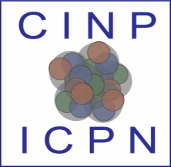Postdoc positions at UMass Amherst
The Physics Department at the University of Massachusetts Amherst invites applications for up to three postdoctoral research associate positions. The successful candidates would primarily work one or more of the following projects. The MOLLER experiment at Jefferson Lab, poised to make the world’s most precise measurement of a low energy purely leptonic weak neutral current process, is now in the engineering design and construction phase. Ongoing UMass activities focus on engineering design support, simulations, prototype testing, and software and analysis infrastructure for installation and commissioning. Synergistic R&D on the P2 experiment at Mainz, the SOLID proposal at JLab and future high luminosity measurements at the EIC are also part of ongoing research efforts. UMass is also involved in the nEXO double beta decay experiment, with leadership roles in the design of the detector calibration, cryogenics, and xenon purification and handling systems. UMass nEXO R&D includes laboratory tests to characterize SiPM sensors for xenon scintillation, studies of LXe optical parameters, and development of laser-driven photocathodes for in-situ charge calibrations.
We seek candidates with strong hardware and/or simulation and analysis skills. A Ph.D. in nuclear or particle physics or equivalent experience is required. Examples of preferred experience include participation in the design and analysis of accelerator-based precision measurements, particle detector design and construction, low-background and fluid handling techniques for rare event searches, and familiarity with lasers for nuclear and particle physics applications. A track record of developing hardware for particle/nuclear physics experiments and proficiency in Monte Carlo simulation and data analysis, C/C++ and Python programming are highly welcome.
Faculty members at UMass are also involved in the DarkSide experiment searching for particle dark matter with large liquid argon detectors, in measurements of the solar neutrino spectrum with Borexino, the LZ dark matter experiment, searches for low-mass dark matter with superfluid helium detectors, the Fermilab muon g-2 experiment, searches for permanent electric dipole moments of fundamental particles, and precision tests of QCD. The department is home to a large group working on ATLAS at the LHC and the Amherst Center for Fundamental Interactions (ACFI) that brings together theorists and experimentalists at the interface of the intensity, cosmic, and energy frontiers of particle physics through workshops, schools, and support for visiting scientists.
Review of applications will begin on May 1, 2022 and priority will be given to candidates who apply by June 1, 2022. The first position is available as early as July 1, 2022.
The details of the application portal with the full details of the position and the required application materials are still still being set up and will be included in a followup email in a couple of weeks. In the meantime, those interested in applying are encouraged to contact Prof. Krishna Kumar (kkumar at UMass.edu) and/or Prof. Andrea Pocar (pocar at UMass.edu) to communicate interest or to seek further clarification on the position and research activities.
